
There's a common misunderstanding in the gaming community that adding more randomisation to a game makes it less luck-based, and pulling back from random elements increases its basis in skill. However, if you use RNG right, you can get a game that tests players' skills more scrupulously. In many action games like Ghosts 'n' Goblins or Destiny, some enemies will use random number generation to decide what attack they execute when or which direction they might try to dodge in. Because the player can't memorise an enemy attack pattern and play back a scripted strategy, they must respond to these randomised moves in the moment, allowing the game to test their response time and improvisation. Pitting a player against a human opponent can also achieve the same effects, as we can't entirely predict other people's behaviour either. For another example of RNG improving tests of talent, imagine you and your opponent play multiple rounds of a fighting game in which you each pick random characters. In this hypothetical fighting game, all characters are well-balanced. While the tools you and your opponent would be given would be random, your average success would depend on the breadth of your skills and your mastery of all modes of fighting, making it a test of skill.
Bar fringe circumstances, your hand in Magic: The Gathering is a random selection of cards from your deck. Although, I'll elaborate on the exceptions to this rule in the next blog. If you could craft your ideal hand at any one time, you could employ one set of actions that could be formidable in battle, but you would mindlessly churn through them like a robot. Because you don't always get the cards you want and because your opponent will draw different counterfire each time, you must show your prowess in a variety of situations and master a wide set of mechanics instead of just a few cards. You can see the parallels with our fighting and action game thought experiments. In Magic, the randomisation of hands also makes each match far more varied than if you did not have it. We can apply the same thinking to deck building. If you can't guarantee that you're going to draw one small handful of useful cards from the deck, you have to construct a set of cards that works in a range of scenarios. This randomness further allows us to make consequential decisions about how much we want our decks to be specialised towards a specific play style or play styles, and how much we want them to be flexible.
But it doesn't stop there! Almost all media, including games, rely on tension. "Can she hang onto this cliff for a second longer?", "Will I be able to apprehend these terrorists in time?", etc. You can see from those examples that tension always arises from uncertainty about a conclusion. If a positive outcome is consistently assured, instead of tension, we become numb to victory and rewards. If a negative outcome is consistently assured, we get defeatism. Many game systems are deterministic because, in many cases, if we can't guarantee that a particular action will lead to certain results, we have no authority over the play, and the draw of almost every video game is that you are controlling the events on screen. However, if all mechanics in a game are deterministic and we always take the same actions, we always get the same results. And as we just recounted, always getting the same output means undesirable emotional responses. But if the designer stirs randomness into the mix, there can be uncertainty about whether we'll get a favourable or unfavourable conclusion from an interaction, generating tension.
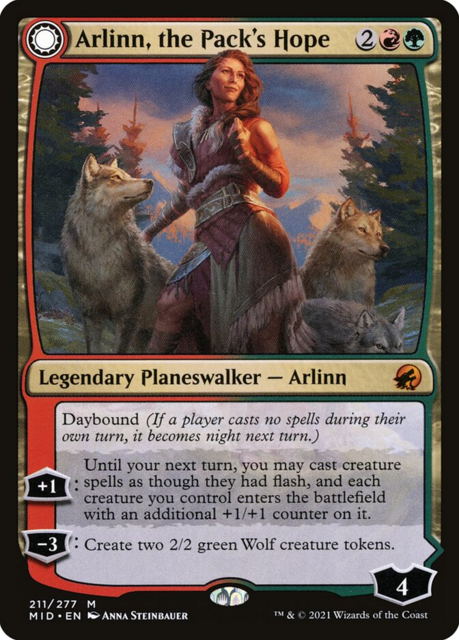
In Magic, tension arises from randomness in that we might wait with tingling expectation to see whether we draw that land card we'd need to summon a more powerful creature or that enchantment that could exile a problem character in the opponent's party. And where you have randomness, you have hope. Just like someone might keep putting coins into a slot machine because the next spin could be the one that pays out, even if you're on the ropes in Magic, there is often the chance that the next card you draw could wipe the enemy army from the battlefield. There are cards that are that explosive.
Although, arguably, like a slot machine, Magic's system can create false hope, stringing players along well past the point of no return. Randomness does not occupy the same seat in Magic as it does in Ghosts 'n' Goblins or our hypothetical fighting game. In those examples, the problems players encountered were chosen by dice roll, but they were fair because the player always had a viable set of abilities to solve those problems. In the Ghosts 'n' Goblins example, we always have the same powers, even though the challenge is randomised. In the fighting game, our abilities and enemy powers are randomised, but are all of equivalent power levels. In Magic, the deck means that our abilities and the challenges we must overcome are randomised. Yet, not all cards in our library are of equal sharpness. Therefore, because the deck is randomised, so is our potency in the play.
There are a few different reasons that some cards in the deck are more powerful than others. As covered in the previous article in this series, certain spells have a generally outsized ferocity compared to others of the same mana cost. But more often, the efficaciousness of cards depends on the current context. Context such as the other cards available on the field or in your hand. Haunting Figment is a creature that can't be blocked on a turn as long as you've cast an instant or sorcery spell that turn. But whether you keep pulling instant or sorcery cards from your deck to play is, to a great extent, down to fortune. Arlinn, The Pack's Hope, is a red/green planeswalker with a power that lets all creatures enter the field with one more attack and defence. You could pair it with a red sorcery like Song of Totentanz, which lets you summon as many 1/1 rats as you have mana minus 1. All those rodents would enter the arena with double the power and toughness. But you're appealing to luck if you want to draw Arlinn and a mass-spawning card like Totentanz together.
Sometimes, the wrong draws don't just mean a card cannot fulfil its potential but render it impotent. If I draw an aura that can enchant a creature, like Take Flight or Hyena Umbra, but I have no creatures on the field, it's currently useless. If I'm holding Locthwain Scorn, which does 3 damage to an enemy creature, but I have no way to reduce that creature's life to 0, what's the point of the damage spell? All creatures heal up to max at the end of the turn.
Another source of random potential in Magic, a more notorious one, is your chances of drawing land cards. Land is your main source of mana on each turn, and you spend mana to play nonland cards like creatures, enchantments, and instant spells. To simplify a little, if you have five land cards on the field, you can cast a card with mana cost five during a turn. Or, with the same land, you could set down a two-mana card and a three-mana card, or a one-mana and a four-mana. You get the idea. So, it doesn't matter how many creatures and other spells you're drawing; if you don't draw land, you're not playing anything, and unless you have a special workaround, how much land you draw and when you draw it is random.
A sensible Magic deck will usually be comprised of about one-third lands. Although, a player may include a few more or less based on other factors like the costs of the cards in their deck. The availability of new lands will also reduce as a player picks them out of the deck. Generally speaking, you can go for a couple of turns without having land to play, but usually only deep into the game, while you need land at the match's outset to lay the foundation of your strategy. You draw seven cards before your first turn and, by default, 1 card on every turn, so it sounds like your chances of entering a "mana drought" aren't that bad. But we don't need to fall back on intuition; we can calculate the odds. Here are our chances of failing to draw land over multiple consecutive turns, assuming our deck is one-third land cards:
Table 1
| Number of Subsequent Turns Elapsed | Chance of Not Drawing Land |
|---|---|
| 1 | 66.66% |
| 2 | 44.44% |
| 3 | 29.63% |
| 4 | 19.75% |
| 5 | 13.17% |
| 6 | 8.78% |
| 7 | 5.85% |
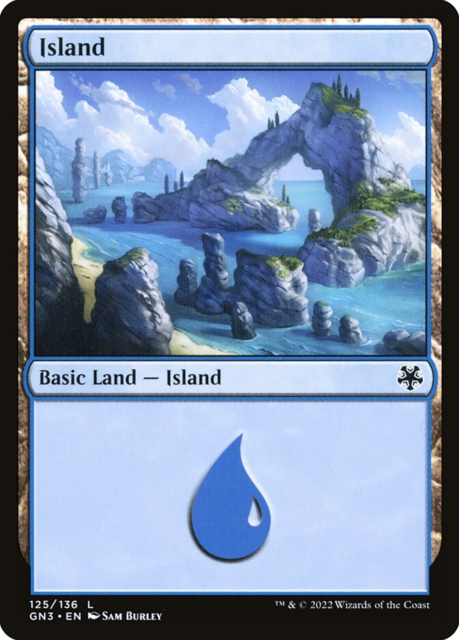
As you can see, it's not uncommon to end up in a situation where you don't see an increase in your ability to cast cards for, say, 4 turns in a row. Hell, everyone who played X-COM seems to have taken a 99% ensured shot that still missed. Imagine what a 6% chance of not drawing land for 7 turns does to a game. This is why Blizzard's trading card game, Hearthstone, increases players' mana cap at a fixed rate per turn. Sure, it decreases tension, but it eliminates mana famines. In Magic, the problem is not just that there might be nothing you can play on a turn because your nonland cards have a mana cost greater than your number of lands. The other issue is that one player or another might be able to play more nonlands just based on how lucky they were at drawing land. For example, at the start of a turn, I could have five lands on the battlefield, and two creatures in my hand that each cost three mana to summon. If I draw a land this turn, I can play both those creatures, but if I don't, I have to pick only one. And all that time you're not expanding your land, your opponent may be building up their mana pool. If they are, what will likely happen is that they are able to cast enough spells that they amass a power you can't overcome, even if the mana does start trickling in again eventually.
While I've described mana as a generic resource so far, so as not to confuse, the majority of cards don't ask you to pay just any mana to summon them. Mana comes in colours, and different cards require different colours. Some cards also cost more than one colour of mana. Many decks also include more than one colour of card in order to broaden their strategic horizons because colours roughly conform to playstyles. Needing more than one colour of mana means needing more than one colour of land card in your deck or including multicoloured lands. You can only have four of each type of multicoloured land in your deck, and some of them come with disadvantages, like not kicking in for a turn. If you're not a Magic player, that's probably stupidly confusing, but the upshot is that many players are taking that rough one-third of their deck that is land cards and then dividing it further, meaning that for every nonland in a multicoloured deck, they have even less chance of drawing the colour/s of land they need.
Let's look at this pattern in the white-blue deck from Wizards' latest starter kit. This is a fair target of analysis because Wizards is going to make starter decks not too punishing to play; they won't contain the most fickle randomness in the game. This white-blue pocket stuffer is 60 cards, with 14 cards that require blue mana to summon and 15 lands that exhale blue mana. So, let's say I need to draw a blue land on a turn. There's a 75% chance that won't happen. As before, we can explore the odds of drawing that land over subsequent turns:
Table 2
| Number of Subsequent Turns Elapsed | Chance of Not Drawing Blue Land |
|---|---|
| 1 | 75.00% |
| 2 | 56.25% |
| 3 | 42.19% |
| 4 | 31.64% |
| 5 | 23.73% |
| 6 | 17.80% |
| 7 | 13.35% |
That's a high chance of not gaining a vital resource. Then there's the other side of the coin: you need to draw things that aren't lands. It doesn't matter how much mana you've hoarded if you don't hold any spells; it's spells that put that mana to use. If your typical deck is about 33.33% lands, then it's approximately 66.66% nonlands, so your chances of drawing something that's not land are much better than drawing a land. Again, we can crunch the numbers:
Table 3
| Number of Subsequent Turns Elapsed | Chance of Not Drawing Nonland |
|---|---|
| 1 | 33.33% |
| 2 | 11.11% |
| 3 | 3.70% |
| 4 | 1.23% |
| 5 | 0.41% |
| 6 | 0.14% |
| 7 | 0.05% |
As before, it's important to remember that a 4% chance of something happening doesn't mean it won't happen. I've had floods of lands in matches before. But it's nowhere near as common as lacking land. No, the real problem with drawing nonlands is that, like with lands, not any nonland will do. Some cards have better synergy with others, and some cards you draw, you won't be able to play any time soon. Either because the mana costs of those spells are too high or because they don't apply in the current game state. If you didn't know it before you read this article, you know now that context determines a card's usefulness. A commonplace deck structure involves 33% lands, 33% creatures, and 33% "other". So, you can use Table 1 to calculate your chances of not drawing any of these categories of cards.
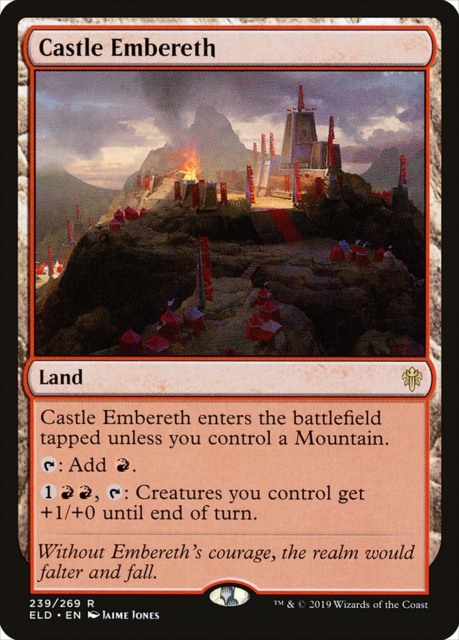
MTG is a strategy game, so you'd hope that as players progress on their journey with it, their understanding and cunning would count for more over time. However, this randomness in the power you wield means that as you gain more expertise, luck plays a larger role. There is an optimal set of moves that you could make in any Magic match, given your hands: the chain of actions that has the best chance of killing your opponent and protecting yourself. As your skill increases, you can reduce the gap between the games you play and those hypothetical ideal games, but the amount of randomness has a hard floor. So, proportionally, as your skill improves, that randomness is a bigger factor in your success.
We can also integrate what we learned about imbalances from the last article with what we know about randomisation from this one. If all cards in the deck were of roughly the same strength, then even if they're shuffled, on any turn, we're going to draw a card that's not too much more or less powerful than any other. However, because there are a few cards that loom larger than all the others (some decks are even built around one or two elite cards), randomness plays a much bigger role in deciding the game. And the more random the power of your tools, the less weight intelligent play has on the match's outcome.
We can offer some further defences of Magic's implementation of randomness. However, these excuses wither under scrutiny. We could forward that you can thwart fate by rebalancing the amount of each card available in your deck. You can add more lands so you're less likely to draw nonlands, or more creatures so you're not just drawing lands and non-creature spells. You can also add plenty of cards that are likely to synergise with the majority of other cards in your deck. However, that's still no guarantee that you'll pull useable cards when you need them, let alone your preferred agents. And constructing your deck is zero-sum: to increase your odds of drawing one flavour of tool, you have to reduce your odds of drawing another. The deck functions as a self-righting system, which ensures that whatever set of cards you select, getting fucked over will be in your future.
We can observe that even if you do get unlucky in a match, over time, the odds will reassert themselves, and all values will regress to the mean. You could have 33% of your deck be creatures, but have a match where you're drawing creatures far less often: only 17% of the time. We can say that if you play enough games of Magic, then in your matches as a whole, you'll still see a 33% draw rate for creatures. This idea applies to any probabilistic event in a game where the probability stays consistent.
But sometimes, Magic can be unfair when the odds do even out. If 35% of my deck is lands, but only 15% of the cards I draw in a match are lands, for my land draw rate to return to an average of 35%, I have to pull far higher than 35% lands in my coming games, and will do so. That means that rather than being undersupplied with this card type in a few games and then having the right share of it in future matches, what I get is starved of land in a few games, then force-fed it going ahead. Another pain is that we don't just experience matches as a set of averages over a whole day or whole career. Competitive games thrive on the idea that each battle matters, so making your best deck preparations for a match and having the odds skew wildly far from the average is still frustrating. Equally, we can say that even if an opponent gets lucky in a match, their average performance over time will still be a product of their deck's quality, but we don't face them over their whole career. Many players will only meet another player once, and if their opponent got lucky or unlucky during that meeting, that will be all their enemy knows of them.
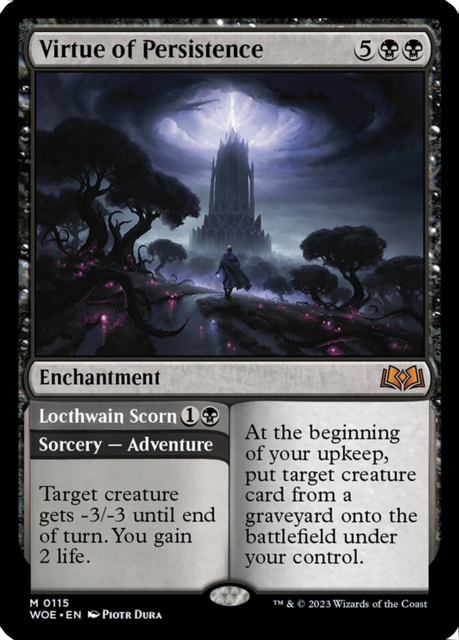
MTG does allow you to water down the randomness at the start of a game with "mulligans". SinceJuly 2019, the official rules say that at the opening of a match, each player draws seven cards and gets a choice of whether to accept them as their starting hand. Alternatively, they may return that hand to the deck, shuffle, and draw a new hand. If they opt for a fresh hand, they must choose a card they hold and place it on the bottom of the deck. A player may reroll their starting hand up to 7 times, with each reroll demanding they return one more card to the deck before they begin play. So, if I'd decided to redraw my opening hand three times, I'd have to place three cards from my final hand on the bottom of my library.
The mulligan mechanic accounts for the reality that you have to be more selective about cards at the start of a game due to their costs. If you are in the mid-late game, you're likely to have enough land to summon most cards in your deck, but in the first few turns, only the smaller sliver of cards that cost 1-3 mana will do. The restriction of playing one land card per turn means that most players will only be able to play a card that costs one mana on their first turn, one that costs two mana on their second turn, and assuming relatively safe luck, three on their third turn. To refresh your memory, getting the right cards on the field in the early game is instrumental for letting you play powerful cards in the mid and then end game.
The theme of interesting choices for the player persists: Do you accept a hand that's less than brilliant because the redraw could be worse, or do you roll again, pursuing perfection? Is it worth starting with six cards if the spells you get have a better chance of being applicable to the early game, or do you relish the number of options you get with the full seven? It's a fantastic mechanic that more games should be stealing. Yet, even with the mulligans included, players get ahead or fall behind based on chance. It's random whether or not you'll get an ideal hand at the outset, and you can keep refreshing your opening cards to no avail. You may be able to draw new spells, but doing so is a statement that your first procurement wasn't satisfactory due to pure luck. There is no world in which the designers implement the mulligans expecting them to cancel out the randomness, because if they wanted draws not to be random, they wouldn't have made a randomised deck game, in the first place.
Keep in mind that not only are you drawing randomly, but so is your opponent. The game multiplies chance by chance, only increasing the influence of the shuffle. The simplest consequence of the game's random equipping of the players is that it feels unfair when you don't draw the cards you want or when your opponent happens to stumble across the right combo of cards for their current situation. But to take this idea a little deeper, Magic, and other strategy games that make chance a major factor have you take actions as if you can expect your wits and analytical ability to put you ahead, and then do not return that effort in the form of compensation.
The moments in which you cannot defend yourself due to a mana flood or because your opponent draws that one lynchpin card from their library make the deck building and in-match strategising look like a farce. The game seems to say, "Oh, you didn't really waste your time acting like this was anything other than a casino, did you?". And there's no meaningful work that a player can do on the back of a loss due to pure probability. If you lose because you put the wrong quantities of certain breeds of card in your deck or because you didn't fully tap an ability your creatures have, you get the consolation of learning something. There are modifications you can make to your loadout or modus operandi to improve your chances next time. Play does not feel futile, and you're given an activity to complete with probable rewards for their completion. If you poured yourself into a game and lost just because of the order of your deck, you learn zilch. You're left with the sting of an unjust defeat and know that there's not a thing you can do to make losing any less likely in the future.
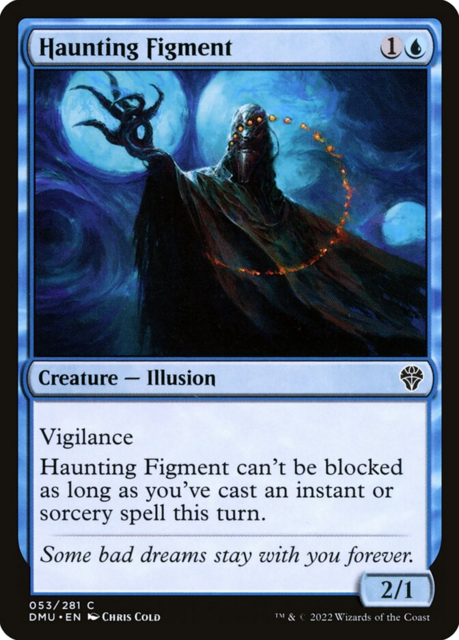
While the poison that is Magic's overpowered cards could theoretically be extracted in the future, this curse of randomisation is here to stay because, unlike the imbalances, it's not about implementation. It's about the foundational concepts that are Magic: The Gathering. Like most card games, Magic uses the phenomenon that some draws are more desirable than others to make its randomising element (in this case, the deck) mean more. Imagine a slot machine where any pattern of reels made it pay out five chips. All randomisation in the system would be redundant, and the ultimate result would not be randomised at all. If every chance-based output produces the same result, why bother mixing them up? If the result can't be good or bad each time, where's the tension?
But random draws don't have to leave successes to flukes. As discussed in the examples at the start of this article, randomness can be a way to vary competition and test player adaptability. Cards drawn could be not better or worse but different. However, Magic makes some draws absurdly more generous than others, and this isn't the way to create tension if you want your game to be a test of systemic understanding and manipulation. Imagine a World Series final where one team tastes defeat because they drew a bunch of rotten, tiny bats, and the other team drew hardy, full-size ones. Imagine a chess where Magnus Carlsen loses his championship because he didn't draw a Queen in time. You can't take these seriously as competitive sports, so you can't take Magic seriously as one, either. Thanks for reading.
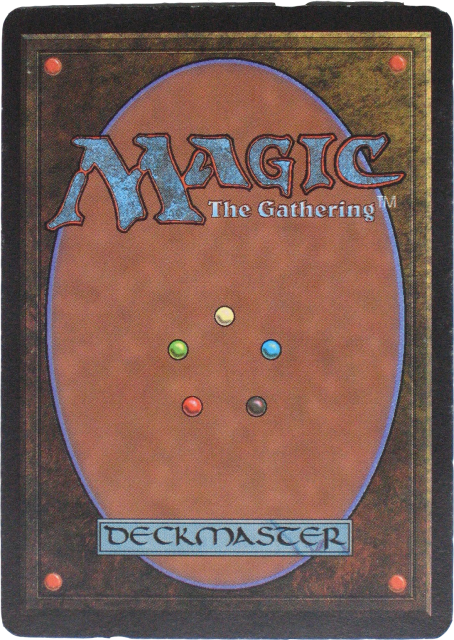
Log in to comment